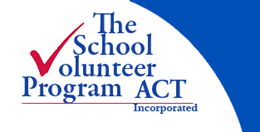Supporting students with their studies –mentors can be asked to assist students in a variety of ways including improving Literacy and/or Numeracy, understanding Science, exploring Craft and Art and working on individual projects. However, the most important aspect of mentoring is building a relationship with the student, to improve their confidence and enjoyment at school.
Courtesy of EdConnect Australia -The Power of an Hour Click to see their Story
Mentors usually work with students one on one, or in small groups, under the supervision of the teacher. The school provides materials and other learning resources as required. Individual students are selected by the school and the tasks undertaken in the mentoring sessions will vary depending on the individual needs of students and the skills of the mentor.
Mentoring through Mecanno Participating mentors work in teams of four or more to work one to one with students in a group environment. The involvement of an individual student is generally for a ten-week period, which matches the time usually taken to complete a model. This has proved very successful in enhancing the self-esteem and confidence students.
Training and Social Gatherings
SVPACT has regular coffee mornings to enable mentors to meet others. We are creating a resource bank. Click Here for our mentors to tap into and training sessions in a variety of topics including, helping students to improve their reading and literacy skills, playing games with students to assist with their number skills, using art as a means of connecting with children and dealing with challenging behaviour. Initial training for mentors is the topic of the biannual Mentor Orientation Seminars.
Expectations of Volunteer Mentors
These are set out in our Code of Conduct Click Here The most important requirement of our mentors is that they honour their commitment to the student by attending the school on time and prepared for their mentoring sessions.
Issues or Student Concerns
‘Mandatory Reporting’ is a term used to describe the legislative requirement for selected groups to report suspected cases of child abuse and neglect to government authorities.
As a school volunteer, you are not required to report your concerns to the authorities, However should you find that your student shares information with you, or demonstrates behaviour that causes you concern, discuss your concerns with the classroom teacher or the School Coordinator.
Sharing this information will enable the school staff to gather information which would be required if an incident/situation was to be reported to the authorities. Student disclosure is about seeking support and your response can have a great impact on the young person’s ability to seek further help and recover from the trauma.
About Your Placement
The SVPACT Mentor Coordinator will assist you to find a suitable placement that is located near to your home. Prior to meeting with the Coordinator you should give some thought to the following questions:
-
- would you prefer to work with very young children, Primary school children, Secondary school students or college students?
- what days and times are you available?
- how much time are you able to commit to mentoring? We seek a commitment of at least two school terms.
- what are you looking for in your mentoring experience?
- which suburbs would you like to work in and would you consider working outside those areas?
